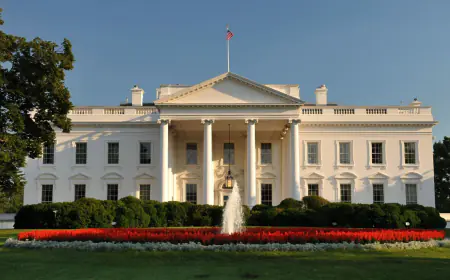Opinion: Ignoring Her Own Victory, Nora Vargas Has Wrought Mess for Supervisors
One of the first orders of business for the four supervisors left standing will be to determine how to fill the immediately vacant seat. The supervisors will likely need to find a way to navigate this dilemma



The Nora Vargas announcement Friday that she’s departing the San Diego County Board of Supervisors instead of serving her final term is the biggest local political shocker since, well, only a couple years ago when Nathan Fletcher resigned his own supervisor seat.
Aside from incumbent county supervisors either a) occasionally losing re-election, b) winning a different office midway through their term, c) simply deciding not to run again, or d) in more recent years being term-limited from office, I would be hard pressed to find even one other example of an abrupt departure like those of Fletcher and now Vargas since at least the 1970s or 1980s, if not earlier.
Now two in two years. That’s definitely not the norm.
The Vargas example is even more rare, maybe unprecedented. She won re-election overwhelmingly in November and would have taken the oath of office Jan. 6. Instead, she announced she won’t be sworn in at all, thus in a sense ignoring her own victory.
Technically it’s not a resignation, even though many in the media are calling it that, probably because it looks like one. It’s not, but maybe only a wonk recognizes — or cares about — the nuance.
Vargas is completing her current term, not exiting early before her four years are up. She’s simply not starting her next term.
A resignation? Technically, no.
A departure? That’s closer to it.
A refusal to take office? Yep.
Unprecedented? Yeah, pretty much.
Vargas’ Reasoning
But why exactly is she showing herself the door?
It’s safe to say no one except maybe those closest to Vargas truly knows the reason.
Political insiders love to be on the inside. If they’re not “in the room where it happens,” they very much love to be close enough to someone in the room, so they hear the news first. Let’s just say this one is really chapping the hides of the usual “in-the-know” echo chamber poli-geeks.
Voice of San Diego did a superb job dissecting and assessing a litany of possible reasons behind Vargas’s decision.
Whatever is behind it, I don’t care to digest it further. Vargas’ reason is forthcoming. Or it isn’t. In either case, it won’t fill a vacancy on the Board of Supervisors.
On January 6, 2025, Joel Anderson and Terra Lawson-Remer will take their oaths for respective second terms. Vargas will not.
Appointment or Special Election?
One of the first orders of business for the four supes left standing will be to determine how to fill the immediately and instantaneously vacant seat — either by appointment or by special election.
The Fletcher resignation in 2023 is a lesson in what might be expected. Although some of the supervisors at that time (including Vargas) may have desired to save the significant costs of a special election through an appointment process, the community demanded the right to select their own representative.
Many believe this was instrumental in the supes opting for a special election. Monica Montgomery-Steppe ultimately won that contest.
Even more so, the prospects of an appointment to fill the vacancy are further complicated by a split board, with two Democrats (Montgomery-Steppe and Lawson-Remer) and two Republicans (Anderson and Jim Desmond), the same partisan makeup numbers-wise as in 2023 following the Fletcher exit.
How does anyone get three votes to fill a vacancy?
Yet the argument for a special election is somewhat discounted by the glaring fact that Vargas just won re-election. As a result, some will argue the recent election was already at significant taxpayer expense. “Why should we now spend even more for a special?!”
But most significantly, this is a full-term seat that’s commencing without an occupant. What do you reasonably do other than hand the decision back to the voters?
Watch for a special election.
Who’s In?
Next, it’s a given that Vargas’ District 1 South County area was drawn as a “safe Democratic seat.” The registration shows about 45.6% Dem, 22% Rep, and 25.6% decline-to-state.
There will be a host of Dem names floated, and potentially there may be at least a handful that enter the fray. Jim Hinch at Voice and others hashed through several of those names, including various city officials from Chula Vista and National City. Some big name Democrats include Assemblyman David Alvarez and San Diego City Councilmember Vivian Moreno.
Yet with Republicans sometimes bucking the odds in typically low-turnout special elections, the seat isn’t necessarily as safely Dem as it may appear. The obvious Republican is Chula Vista Mayor John McCann, with his city making up roughly 46% of the supervisorial district.
That provides for some interesting analysis, including whether the leading Democrats in a very busy and noisy primary prefer to face a Republican in a runoff, or one of their own.
Polling firms are being hit up over the holidays, that’s for certain.
When Will a New Supervisor be Seated?
The San Diego County Charter speaks to the process and timing for special elections. Unless only two candidates qualify for the ballot or, in a larger field, one of the primary candidates achieves 50% of the vote, there will be both a primary and general election.
In open-seat scenarios with multiple candidates, a contest ending in the primary is highly unlikely. The chance of only two candidates is slim, while multiple candidates makes it difficult for any to achieve a majority. Based on the charter, we should expect a longer-than-six-months process to hold both elections and seat a new supervisor.
Board Officer Elections: Who’s in Charge?
Which brings us to another important order of business to take up for the four remaining supervisors, now made even more fascinating with a 2-2 board.
The supes have 30 days from the first meeting of the year to elect officers, including a chair, vice chair and chair pro tem. It’s typically done at the first meeting, known as the organizational meeting.
Vargas is the current chair, wrapping up her second year in the position. It was anticipated that current Vice Chair Lawson-Remer would be the new chair in 2025, with the three Democrats (including Vargas) in alignment to support her.
In recent years, when Vargas — and Fletcher prior to that — were selected as chair, Republicans Anderson and Desmond, in the minority on a 3-2 board, had no power to even consider themselves for the position.
So what happens now, with Vargas out at the very moment of an officer election, leaving a 2-2 board? A stalemate?
Would the supes go over six months without electing a chair? The charter doesn’t appear to speak to such a scenario, but even if it’s allowable, it might not be advisable. Agenda setting, internal board committees and regional, state and national board assignments are all potentially in play. This includes high profile positions such as SANDAG and the Metropolitan Transit System, among several others.
The county also has in place policy indicating that officers remain in their positions until the board makes new appointments. It’s the common “continue to serve until replaced” rule. The charter further notes that “the vice-chairperson has full authority to act if the chairperson is absent or unable to act.”
My understanding is the county clerk has already interpreted it to mean that in the absence of the chair being present, the vice chair would serve as chair. So Lawson-Remer.
Ah, but there’s the rub. There’s also a very legitimate interpretation that when the board first meets in the new year, that no officers exist at all at the start of the meeting, including last year’s officers, Vice Chair Lawson-Remer and Chair Pro Tem Anderson. These are new terms, with both getting sworn in — as members of the Board of Supervisors, not as automatic officers of the board.
If one or both hadn’t won re-election, would they continue to serve as officers until this gets figured out? Uh, no.
The supervisors will likely need to find a way to navigate this dilemma, by selecting a chairperson, or finding a way to co-chair the meetings and proceedings.
A coalition government may be in order. Weird times call for creative solutions.
Happy New Year to the County of San Diego!
Barry Jantz, a former La Mesa City Council member and former CEO of Grossmont Healthcare District, now runs Jantz Communications and is chairman of the Health Services Advisory Board for the County of San Diego. A version of this piece originally appeared on San Diego Rostra.
What's Your Reaction?










































































































